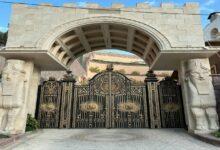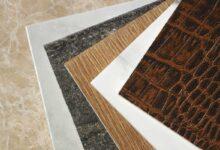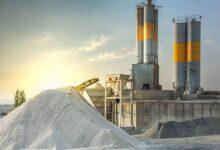Premium Iranian Gypsum export
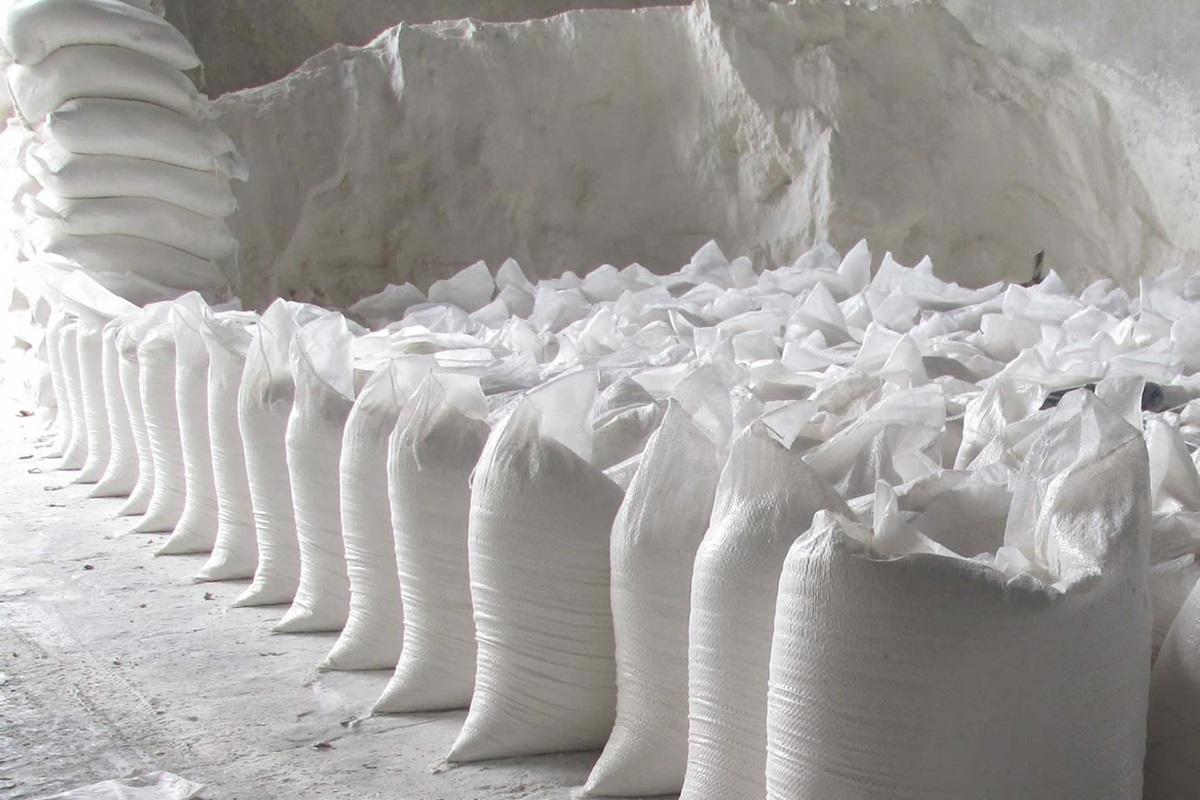
Iranian gypsum is widely sought after for its superior quality, making it a popular choice in construction, agriculture, and various industrial applications. Known for its purity and fine texture, Iranian gypsum is ideal for producing high-quality plaster, drywall, and cement additives. It is also commonly used in agricultural applications to improve soil quality and boost crop yields. With its exceptional consistency and excellent performance, Iranian gypsum stands out as a top choice for bulk orders and large-scale projects. Purchase directly from trusted suppliers and explore our updated price list to find the best deals on premium gypsum products at competitive export rates. these materials readily absorb water and after mixing with it, they become a rubbery material. Installation of buildings requires compliance with the rules and regulations on how to use windows. Because if not used properly, it may cause cracks or deep cracks. After processing in factories, gypsum powder is packed in bulk and big bags and sent to different parts. Iran is one of the most famous and powerful countries in terms of media sales in the world.
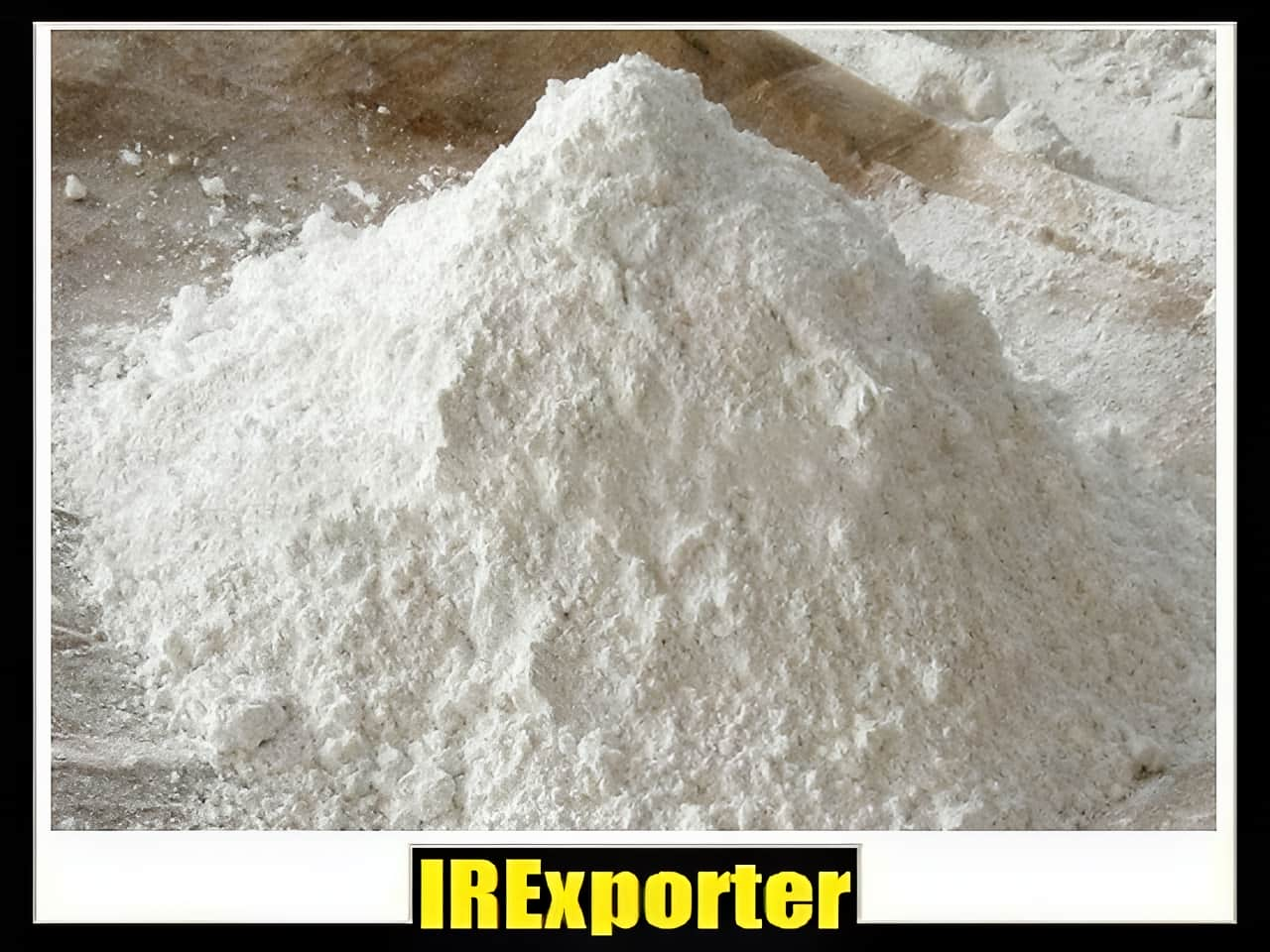
gypsum export process:
exporting goods can be categorized into two types: specific exports and temporary exports. Specific exports involve selling goods directly to foreign markets for mass consumption, while temporary exports refer to goods temporarily transported to a destination country for specific purposes, such as participating in a trade fair. Gypsum exports fall under the category of specific exports from iran. The steps involved in exporting gypsum, similar to most export commodities, include the following:
1. Marketing: the initial stage involves marketing and finding foreign buyers in the destination country. Exporters are informed about orders received from different countries and the quantity of the order.
2. Price negotiation: after inspecting the product, manufacturers provide an approximate price to the export department for review. Once approved, the final price is communicated to the buyer, and customs offices are notified.
3. Negotiation and pro forma invoices
irexporter is a leading exporter of powder and stone gypsum to various countries. We specialize in the export of powder and stone gypsum to turkey, pakistan, uzbekistan, iraq, georgia, afghanistan, cyprus, kuwait, oman, qatar, syria, armenia, turkmenistan, russia, morocco, europe, africa, australia, and new zealand. Our company is known for its high-quality products and reliable transportation services. We offer a wide range of options for customers looking to buy export powder and stone gypsum. Whether you need it for construction projects or other applications, we have the right type of gypsum to meet your needs.
as a trusted exporter of powder and stone gypsum, we provide a comprehensive range of services. Our agency offers guidance on the specifications of export powder and stone gypsum from iran. We have a well-established sales system in iran to facilitate your purchase. Whether you are looking for the best export powder and stone gypsum or want to know the current price, our knowledgeable team can assist you. We also offer wholesale sales of export powder and stone gypsum, ensuring competitive prices and high-quality products.
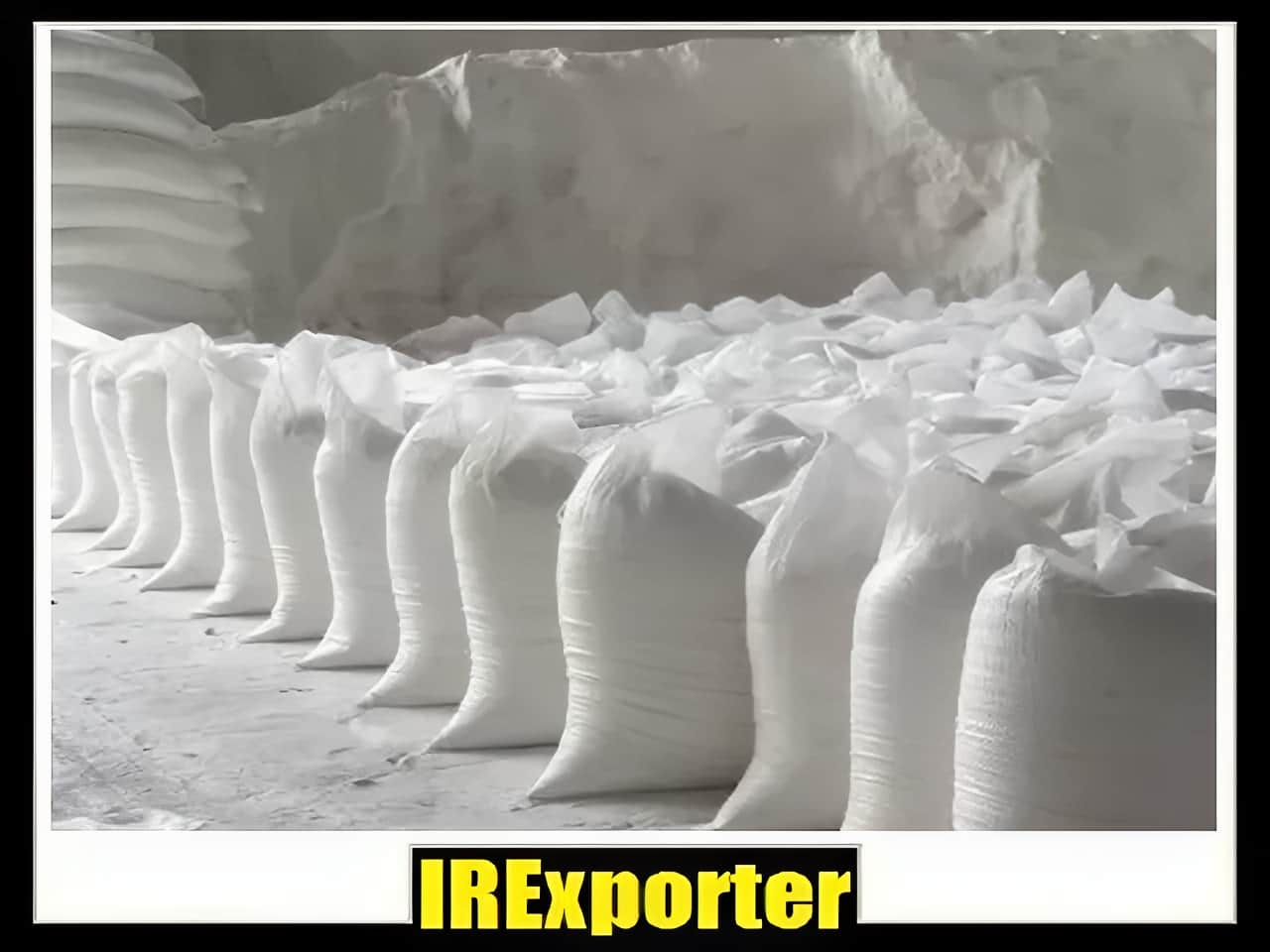
shipping of gypsum
plaster material is widely used in construction projects due to its versatility and light weight. It is used for covering various parts of buildings and has applications in medicine, security, road construction, and more. Gypsum is extracted from the earth and processed into powder form. It is derived from natural and mineral stones, such as lime and cement. Gypsum has different types, but the most commonly used in the construction industry are lime powder and cement gypsum.
proper usage of gypsum for plastering buildings is essential to prevent cracks and fractures. After the gypsum powder is processed in the industry, it is packed in bulk and sent to different locations. Iran is a prominent exporter of gypsum worldwide, with a production and usage capacity of over 30 million tons per year. In 2020, iran exported more than 1 million tons of gypsum to other countries, resulting in a significant increase in foreign exchange earnings for the country.
in the following sections, we provide additional information about gypsum material and its types, as well as the export sector:
gypsum material and its types
gypsum is a common material used in construction, obtained by grinding gypsum stone in factories. Its main use is in construction, but it also has applications in medicine, engraving, production of prefabricated parts, molding, and more.
different types of construction plaster include special white plaster, soft plaster, soil plaster, spray plaster, gypton plaster, and marble plaster. These types vary in terms of working characteristics, powder quality, and specific usage. Plaster provides a smooth and uniform surface without visible pores, making it highly resistant to temperature changes when properly treated. However, it may have limitations in humid climates and stain resistance.
irexporter offers a range of gypsum brands, each known for its excellent quality. Our gypsum production and processing industry in iran is highly active, and we have made significant progress in the export sector. We focus on maintaining the purity, color, particle size, packaging, and processing of gypsum to ensure the best quality for our customers. The demand for different plaster types may vary based on consumption culture in different countries.
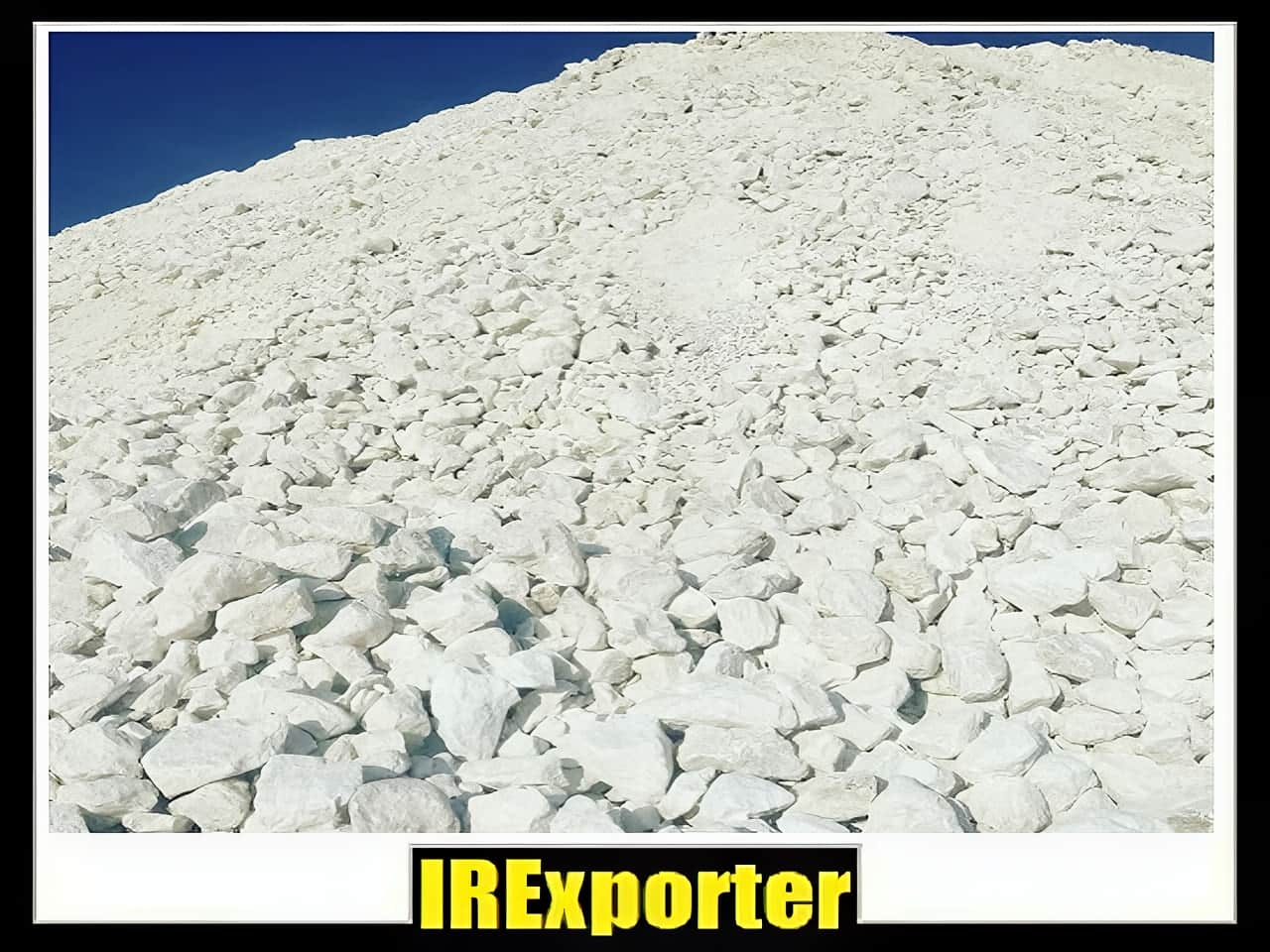
gypsum export Top-Grade
iran is one of the largest producers of gypsum globally, accounting for approximately 10% of the world’s total gypsum production. The country has abundant natural and mineral resources, making it a significant player in the gypsum industry. Iran has several active gypsum mines, and in recent years, it has increased its gypsum production and export to meet the demand from various countries.
the gypsum consumption in different countries follows specific guidelines and standards, which manufacturers must adhere to when supplying gypsum for different regions. With modern equipment and adherence to international standards, iran can produce all types of construction plaster. The gypsum industry in iran exports to countries such as afghanistan, turkmenistan, armenia, turkey, india, russia, china, and persian gulf countries.
plaster material is a commonly used item in construction projects used to cover various parts of buildings. Due to its high plasticity and low weight, this material has wide applications in the fields of medicine, defense, road construction, etc. Gypsum material is extracted from the depths of the earth and from natural and mineral rocks and this raw material is converted into gypsum powder. During the cooking and grinding process. There are different types of this material, lime and cement powder are the most common in the construction industry.
iran’s export price of gypsum
the export price of gypsum from iran varies based on several factors. Different quality categories, granulation, whiteness, processing methods, and purity levels impact the pricing of gypsum products. Shipping costs, exchange rate fluctuations, and customs-related issues also contribute to the final price. To get the latest information on the price of gypsum for export, it is recommended to consult reliable sources or sales offices active in the international sector.
documents required for gypsum export
when exporting goods from iran to other countries, certain documents are necessary. These documents generally include a valid business card, export license (if required), health certificates (for food or health products), quality certification, bank certificates, and certificates of origin. Baling certificates may be required for larger quantities of goods. Carne tir is another essential document for transporting goods through border customs to the destination country. It is advisable to familiarize yourself with the specific requirements of the target country’s customs and banking laws for a smooth export process.
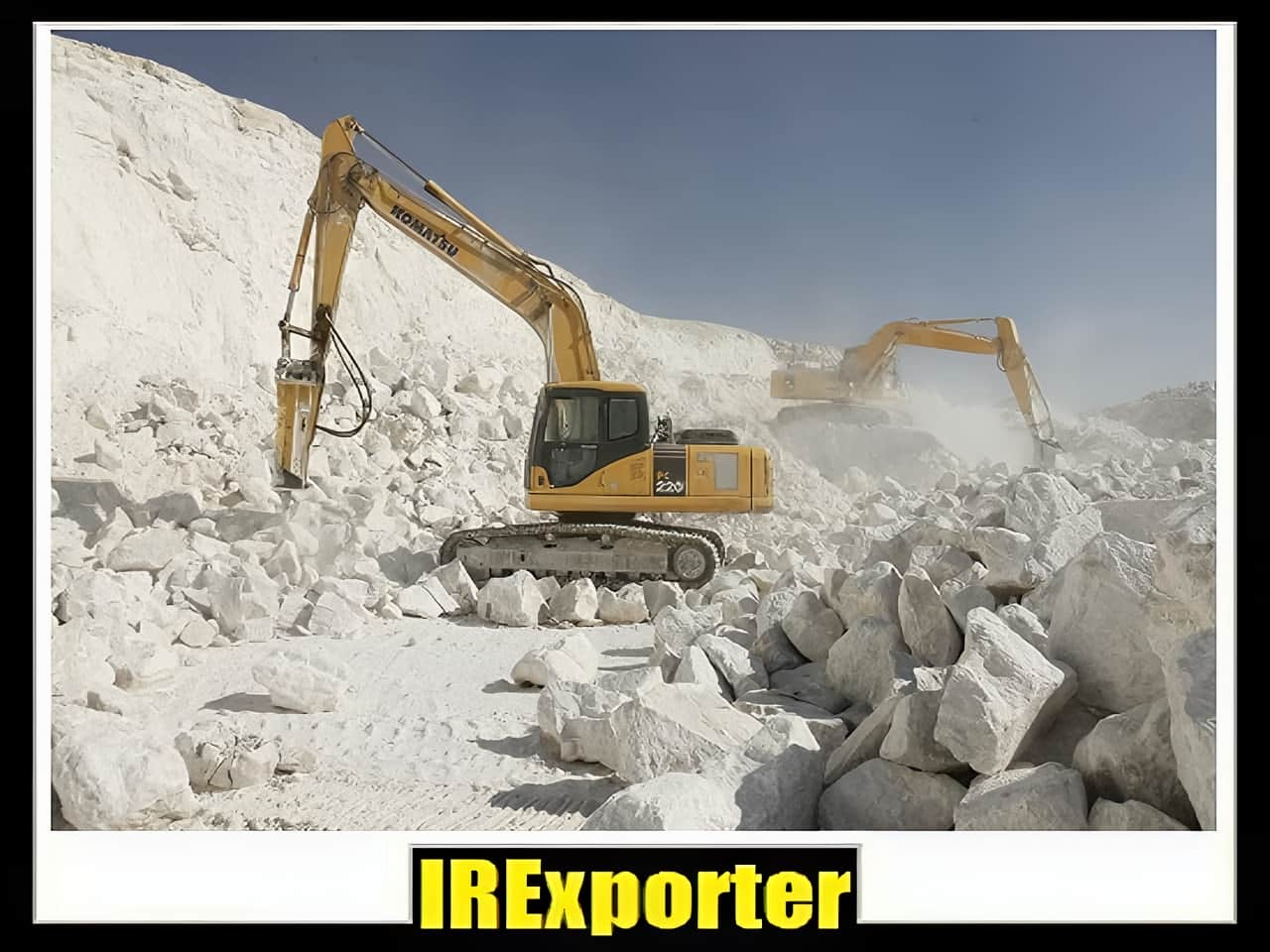
shipping of gypsum
gypsum is a versatile plaster material widely used in construction projects. Its plasticity and lightweight nature make it ideal for various applications, including medicine, security, road construction, and more. Our gypsum material is sourced from natural and mineral stones found deep within the earth. Through a meticulous cooking and grinding process, we convert the raw gypsum material into high-quality gypsum powder.
different types of gypsum are available, with lime powder and cement being the most commonly used in the construction industry. It is important to follow the principles and regulations for using gypsum in plastering buildings to ensure optimal results and prevent cracks or fractures. Our gypsum powder undergoes rigorous quality control measures before being packed in bulk and dispatched to different destinations.
iran has emerged as a leading exporter of gypsum worldwide. With a production and usage capacity of over 30 million tons per year, the country plays a significant role in meeting global gypsum demands. In 2020 alone, iran exported more than 1 million tons of gypsum to various countries, contributing to a substantial increase in foreign exchange earnings.
in the following sections, we will provide additional specifications about gypsum material and its types, as well as insights into the gypsum export sector.
gypsum material and its types:
gypsum is a commonly used building material derived from gypsum stones. It is obtained by grinding the stones into a fine powder, which is then used for construction purposes. Gypsum finds extensive use in the construction industry due to its properties such as high molding speed, strength, and excellent coating characteristics. Apart from construction, gypsum is also utilized in medical applications, engraving, prefabricated part production, molding, and more.
various types of gypsum plaster are available, including special white plaster, soft plaster, soil plaster, spray plaster, gypton plaster, and marble plaster. Each type has distinct working characteristics, powder quality, and specific uses. One of the notable advantages of using gypsum in various industries is its ability to create a smooth and uniform surface without visible penetration points. Gypsum surfaces exhibit great resistance and, when treated correctly, can withstand temperature changes effectively.
while gypsum offers several advantages, it is important to consider its limitations. Gypsum is less resistant to humid climates and does not perform well against stains. Additionally, it is challenging to remove dirt from gypsum surfaces. However, considering its cost-effectiveness and large-scale production in iran, gypsum remains a popular choice in the market.
brands of exported products:
iran’s gypsum production and processing industry is highly active, achieving significant progress in the export sector. The industry focuses on maintaining the quality of gypsum products and adhering to standards in international markets. Factors such as material purity, gypsum color, particle size, packaging, and processing methods are carefully monitored to ensure optimal results. The industry’s emphasis on quality has contributed to increased demand for iranian gypsum in neighboring markets. However, gypsum consumption and demand vary from country to country based on their specific construction cultures.
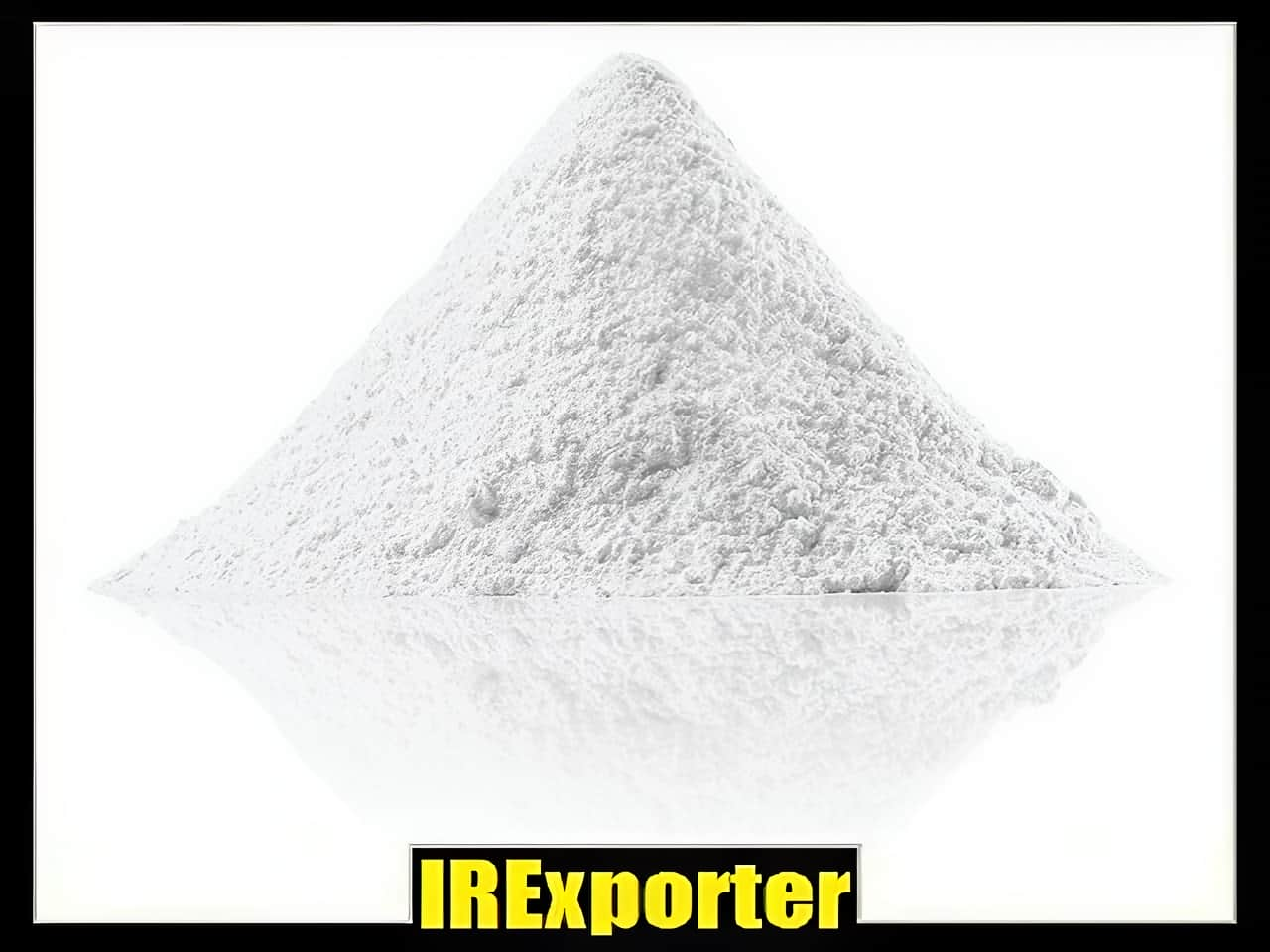
gypsum export
iran is recognized as one of the largest producers of gypsum globally, leveraging its abundant natural and mineral resources. The country accounts for approximately 10% of the world’s total gypsum production, making it a significant player in the industry. Iran operates several gypsum mines, with domestic natural mines yielding around 10-13 million tons of gypsum in 2019 and 2020, respectively.
gypsum consumption in different countries follows specific guidelines and standards that manufacturers must adhere to when supplying the material. With modern equipment and processing techniques, iran can produce all types of construction plaster in accordance with international standards. Today, iran exports gypsum to countries such as afghanistan, turkmenistan, armenia, turkey, india, russia, china, and the persian gulf region due to its capacity for large-scale production.
irexporter is a leading exporter of powdered and stone gypsum to various countries. We specialize in the export of gypsum to turkey, pakistan, uzbekistan, iraq, georgia, afghanistan, cyprus, kuwait, oman, qatar, syria, armenia, turkmenistan, russia, morocco, europe, africa, australia, and new zealand. Our high-quality gypsum products are in high demand in these markets.
at irexporter, we are an agency dedicated to the export of gypsum. We provide a reliable and efficient exchange platform for gypsum exporters from iran. Our business group focuses on facilitating the sales and transportation of gypsum. We guide our clients on the specifications of export gypsum from iran and provide a comprehensive sales system.
if you are wondering where to buy export gypsum, we offer the best options. We can advise you on the type of gypsum suitable for your needs and help you find the best export center in iran. Our goal is to provide the highest quality gypsum at competitive prices. You can rely on us for wholesale sales and the best after-sales service.
gypsum export measures
exporting goods involves specific steps, including marketing, determining the product price, negotiating with buyers, issuing pro forma invoices, and ensuring compliance with export regulations. Each step contributes to a successful export process. The general steps for exporting gypsum, similar to other export commodities, include marketing the product, determining the price, negotiating with buyers, issuing pro forma invoices, and fulfilling export documentation requirements.
export tariff for gypsum
the payment of customs tariffs affects the production and export volume of gypsum. Heavy customs tariffs can impact the profitability of producers and disrupt the domestic market, leading to price fluctuations. Governments often aim to facilitate the export of minerals by supporting producers, streamlining customs clearance processes, and encouraging export activities. Gypsum export prices are subject to fluctuations due to exchange rate variations. For the latest information on customs duties and gypsum export tariffs, it is recommended to consult reliable sources, such as the chamber of commerce website.
gypsum exports to specific countries
we export gypsum to various countries, including turkey, pakistan, uzbekistan, iraq, georgia, afghanistan, cyprus, kuwait, oman, qatar, syria, armenia, turkmenistan, russia, morocco, europe, africa, australia, and new zealand. Each country has its specific requirements and regulations for importing gypsum, and our company ensures compliance with all necessary procedures.
price of gypsum powder
the price of gypsum powder depends on several factors, including the source of gypsum. Building plaster made from pure gypsum stone tends to have a higher cost. Our company, irexporter, provides high-quality gypsum powder at competitive prices. We prioritize the supply of premium gypsum products to meet market demands.
supply of high-quality gypsum
at irexporter, we take pride in our high-quality gypsum products. We have successfully exported a significant portion of our gypsum
irexporter is a leading exporter of gypsum powder and stone gypsum to various countries. We specialize in exporting high-quality gypsum products to meet the growing demand in the global market. Our extensive export network covers countries such as turkey, pakistan, uzbekistan, iraq, georgia, afghanistan, cyprus, kuwait, oman, qatar, syria, armenia, turkmenistan, russia, morocco, europe, africa, australia, and new zealand. We take pride in delivering superior gypsum products to our international clients.
as an experienced gypsum export agency, we have established a strong presence in the industry. Our business group is dedicated to providing top-notch customer service and ensuring smooth transportation of gypsum products from iran to different parts of the world. We offer a wide range of gypsum specifications tailored to meet the specific requirements of our clients. Whether you are looking for the best quality gypsum, competitive prices, or reliable after-sales service, irexporter is your trusted partner.
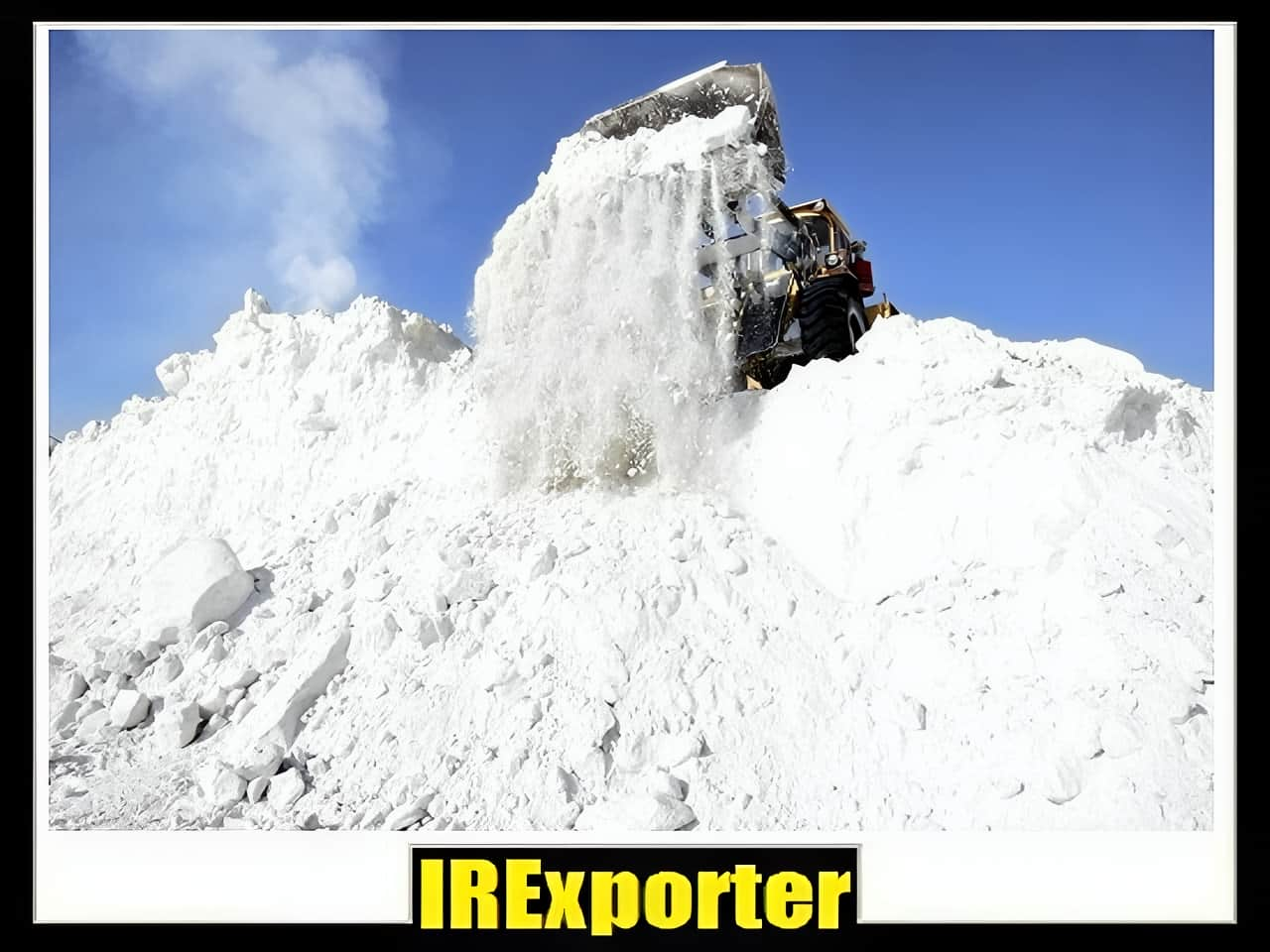
iran’s export price of gypsum
the export price of gypsum from iran varies based on several factors. One of the key factors is the quality of gypsum, which is influenced by granulation, whiteness, processing methods, and purity levels. These factors, along with shipping costs, currency exchange rates, and customs-related issues, contribute to the final price of gypsum exports. To obtain the latest information on the price of gypsum for export, it is advisable to consult reliable sources or active sales offices in the international sector.
documents required for gypsum export:
exporting goods through iranian customs to other countries generally requires specific documents, which may vary in rare cases. The primary document required is a valid business card for the exporter, obtained by individuals or exporting companies from the county association’s website. Depending on the type of goods, additional documents such as export licenses, health certificates (for food or health products), quality certificates, bank certificates, and certificates of origin may be necessary. In the case of exporting large quantities of goods, a bill of lading is also required, which defines the shipment based on the quantity, weight, and type of goods. Carne tir, a document necessary for transporting goods through border customs to the destination country, is the final step in the sales process.
export volume of gypsum from iran
iran’s gypsum production has consistently grown over the years, reaching approximately 16 million tons in 2020. A significant portion of this production is exported to various countries. The export volume of gypsum from iran has been steadily increasing and is expected to continue growing in the coming years.
destination countries for exported gypsum
iran exports gypsum to several countries worldwide, with major destinations being the uae, india, oman, iraq, and bangladesh. These countries have a high demand for gypsum due to their expanding construction industries.
types of exported gypsum
iran exports two types of gypsum: raw gypsum and powder gypsum. Raw gypsum is the unprocessed form, while powder gypsum is processed and widely used in the construction industry due to its fine texture and superior quality.
quality of exported powder gypsum
gypsum quality significantly impacts its purchase price. Higher quality gypsum commands a higher price compared to lower-quality alternatives. To ensure quality, it is crucial to collaborate with reputable suppliers adhering to strict quality control processes.
quantity of the order
the order quantity also affects the purchase price of exported powder gypsum. Larger orders generally have a lower price per metric ton due to economies of scale and reduced shipping and handling costs associated with larger quantities.
destination country
the destination country influences the purchase price of exported powder gypsum from iran. Shipping and handling costs vary based on the destination, impacting the overall purchase price. Import duties and taxes in the destination country can also affect the final price.
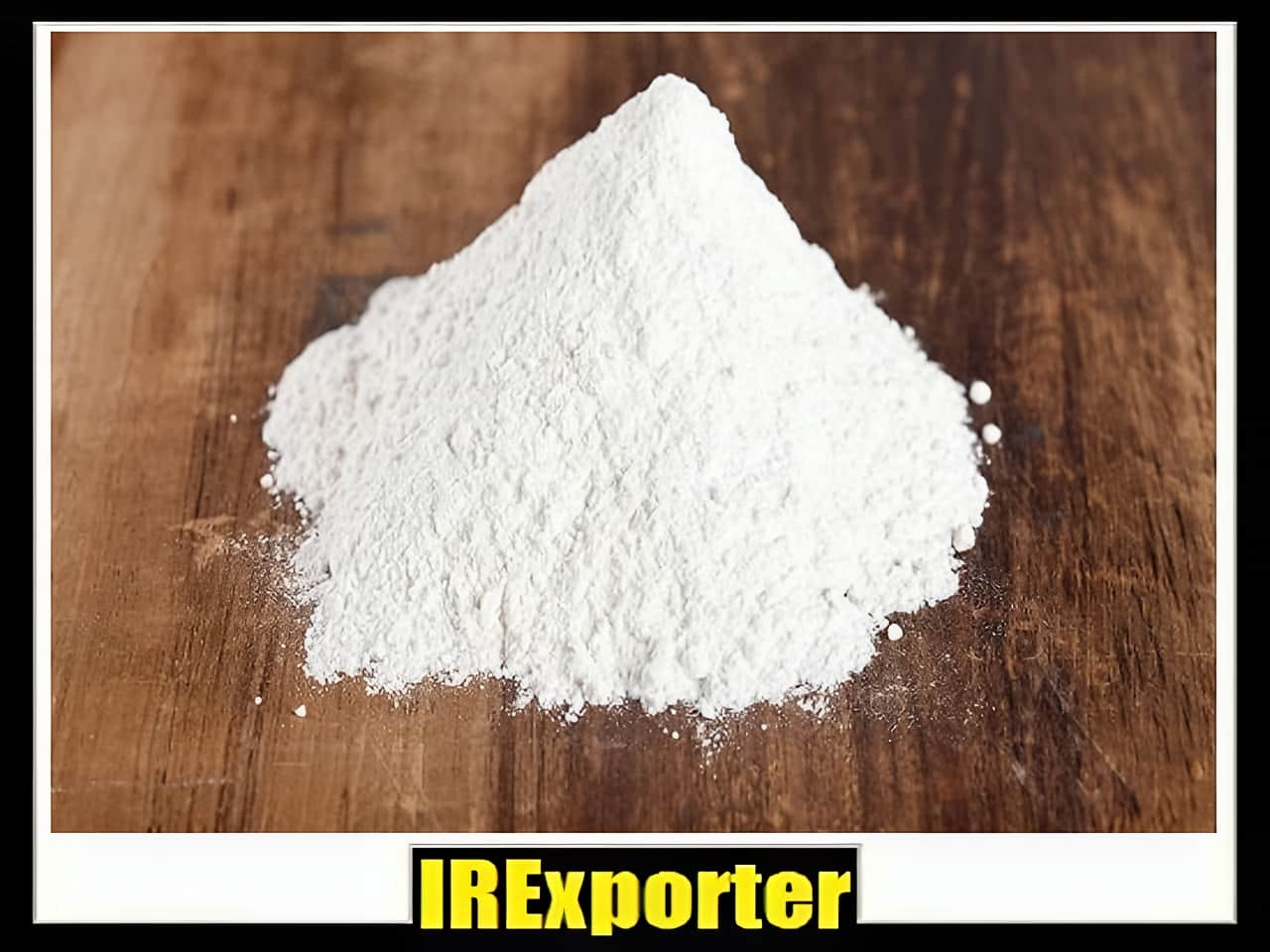
purchasing price of exported powder gypsum
the purchase price of exported powder gypsum from iran varies based on factors such as gypsum quality, order quantity, and destination country. On average, the price ranges from $10 to $30 per metric ton. Market conditions and demand can cause fluctuations in the price.
factors affecting the purchase price of exported powder gypsum
several factors influence the purchase price of exported powder gypsum from iran, including gypsum quality, order quantity, destination country, global economic conditions, exchange rates, and supply and demand dynamics. These factors collectively determine the final purchase price.
if you prefer online shopping, you can conveniently order powder and stone gypsum from our online store. We provide immediate purchase options for export powder and stone gypsum, along with a detailed guide to buying the product. Our goal is to make the purchasing process as smooth and affordable as possible. We offer the highest quality export powder and stone gypsum from tehran, the capital of iran, ensuring that you receive the best products for your construction projects.
gypsum is a versatile material widely used in construction projects. It is obtained from natural and mineral stones through a cooking and grinding process. The resulting gypsum powder has various types, with lime powder and cement being the most common in the construction industry. These types of gypsum have excellent plasticity and light weight, making them suitable for a wide range of applications in medicine, security, road construction, and more.
when using gypsum for plastering buildings, it is important to follow principles and regulations to avoid cracks and fractures. Improper usage can lead to structural issues. After the gypsum powder is prepared in the industry, it is packed and sent to different locations. Iran is a leading exporter of gypsum to the world, with an annual production and use capacity of over 30 million tons. In 2020 alone, more than 1 million tons of gypsum were exported from iran, contributing to a significant increase in foreign exchange.
in addition to the types and characteristics of gypsum, our company also focuses on the export sector. We provide information on the export price of gypsum from iran, the required documents for export, the transportation steps, and the customs fees. We understand the importance of quality and guarantee excellent export quality of gypsum. Our after-sales service ensures customer satisfaction and support.
gypsum exports play a vital role in iran’s economy, with the country being one of the largest producers of plaster globally. Iran accounts for approximately 10% of the world’s total gypsum production. The gypsum industry has made significant progress in the export sector, and iran is actively involved in exporting gypsum to countries such as afghanistan, turkmenistan, armenia, turkey, india, russia, china, and the persian gulf countries.
the export price of gypsum from iran varies based on factors such as granulation, whiteness, processing method, and purity. It is also influenced by shipping costs, exchange rates, and customs issues. To stay updated on the latest price of gypsum for export, we recommend referring to reliable sources or contacting sales offices active in the international sector.
when exporting gypsum from iran, certain documents are required, including a valid business card, export license (if applicable), health certificates (for food or health products), standard certificates to confirm product quality, bank certificates, and certificates of origin. The necessary documents may vary depending on the specific goods being exported. Having a clear understanding of the export process and the required documents is essential for a smooth transaction.
the export process for gypsum involves several general steps. It starts with marketing and finding foreign buyers in the destination countries. Negotiations are conducted with buyers, and pro forma invoices are issued. The pro forma document outlines the terms and conditions of the proposed transaction. Other steps include product preparation and packaging, loading and declaration at the iranian border, account settlement, and product delivery. Each step requires attention to detail and adherence to customs and banking laws.
the export tariff for gypsum is an important consideration for manufacturers. High customs tariffs can affect production and export volume, impacting profitability and domestic market stability. Governments often work to facilitate mineral exports by promoting the export sector, streamlining customs clearance, and supporting producers. It is advisable to consult reliable sources, such as the chamber of commerce website, for up-to-date information on customs duties and gypsum export tariffs.
we cater to the specific export needs of different countries, including turkey, pakistan, uzbekistan, iraq, georgia, afghanistan, cyprus, kuwait, oman, qatar, syria, armenia, turkmenistan, russia, morocco, europe, africa, australia, and new zealand. Our expertise in gypsum exports allows us to meet the demands of various markets and deliver high-quality products. With our reliable transportation services, we ensure timely delivery and customer satisfaction.
in conclusion, irexporter is a trusted exporter of powder and stone gypsum from iran. We offer a wide range of gypsum types, facilitate online purchases, provide detailed product information, and ensure competitive prices. With our expertise and commitment to quality, we strive to be the best in the industry. Contact us for all your export gypsum needs.
gypsum is a versatile mineral widely used in the construction industry for making plaster, drywall, and cement. Iran is one of the world’s largest producers and exporters of gypsum. This article discusses the export of gypsum from iran, focusing on the volume, destination countries, types, and purchase price of exported powder gypsum.
production and consumption of this type of product in the country reaches more than 30 million tons per year. According to customer statistics, more than 1 million tons of gypsum were exported in 2020, resulting in domestic sales of 10 million dollars.
| Heading | Content |
|---|---|
| Introduction | Iran is known for its abundant natural resources, and one of its valuable commodities is natural gypsum. In this article, we will explore the best Iranian natural gypsum supplier and exporter company, highlighting its qualities and services. If you are considering purchasing gypsum, this information will help you make an informed decision. |
| The Best Iranian Natural Gypsum Supplier Exporter | When it comes to sourcing natural gypsum from Iran, one company stands out among the rest. IRexporter Gypsum Company has established itself as the leading supplier and exporter of high-quality Iranian natural gypsum. With years of experience in the industry, IRexporter Gypsum Company has built a strong reputation for reliability, professionalism, and customer satisfaction. |
| Purchasing Gypsum from Iran | IRexporter Gypsum Company offers a seamless purchasing process for customers around the world. Whether you require gypsum for construction, agriculture, or other industrial applications, IRexporter Gypsum Company can fulfill your requirements. They have a wide range of gypsum products available, allowing customers to choose the specific type and grade that suits their needs. |
| Quality and Pricing | IRexporter Gypsum Company is committed to delivering gypsum of the highest quality. They source their gypsum from reputable mines in Iran, ensuring that it meets strict quality standards. The company conducts rigorous quality control measures to guarantee the purity, strength, and consistency of their gypsum products. As for pricing, IRexporter Gypsum Company offers competitive rates in the market, providing customers with value for their investment. |
| Logistics and Shipping | IRexporter Gypsum Company has a well-established logistics network, enabling them to efficiently handle and ship gypsum to customers worldwide. They understand the importance of timely delivery and take all necessary measures to ensure that gypsum orders reach customers in excellent condition and within the specified timeframe. Whether you require a small quantity or a large shipment, IRexporter Gypsum Company can accommodate your needs. |
| Customer Satisfaction and After-Sales Support | IRexporter Gypsum Company places a strong emphasis on customer satisfaction. They prioritize building long-term relationships with their clients by providing exceptional service and support. From the initial inquiry to after-sales assistance, IRexporter Gypsum Company’s dedicated team is always ready to assist customers and address any concerns they may have. They aim to exceed customer expectations and ensure a positive experience throughout the purchasing process. |
| Conclusion | When it comes to sourcing the best Iranian natural gypsum, IRexporter Gypsum Company is the top choice. With their commitment to quality, competitive pricing, efficient logistics, and excellent customer support, they have established themselves as a reliable and trusted supplier and exporter. Contact IRexporter Gypsum Company today to purchase high-quality Iranian natural gypsum for your specific requirements. |
Frequently Asked Questions (FAQs)
-
Can IRexporter Gypsum Company accommodate bulk orders?
Yes, IRexporter Gypsum Company can handle both small and large orders. They have the capacity to fulfill bulk orders efficiently.
-
What are the different types of gypsum products available?
IRexporter Gypsum Company offers a wide range of gypsum products, including gypsum powder, gypsum boards, and gypsum blocks.
-
Do they provide customized packaging options?
Yes, IRexporter Gypsum Company can provide customized packaging solutions based on customer requirements, ensuring the safe transportation of gypsum.
-
What is the typical lead time for gypsum orders?
The lead time for gypsum orders varies depending on the quantity and destination. IRexporter Gypsum Company strives to minimize lead times and ensure prompt delivery.
-
Does IRexporter Gypsum Company offer technical support?
Yes, IRexporter Gypsum Company provides technical support to customers, offering guidance and assistance regarding the application and usage of their gypsum products.
-
Are samples available for evaluation?
Yes, IRexporter Gypsum Company can provide samples for customers to evaluate the quality and suitability of their gypsum products before making a purchase.
| Gypsum export from Iran | |
|---|---|
| 💎 Product benefits | Good price and High quality |
| 💲 Export Gypsum price | The lowest price in the trade market |
| ⏳ Quality of Gypsum for export | Top-Grade |
| ⏱ How to send products | By ship shipping |
| 🎯 How to order | By email and call |
